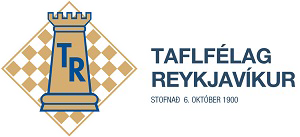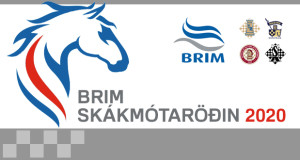Chess and Iceland have a lot in common. The best-known World chess champion of the 20th century, Robert James Fischer (1943-2008), was an Icelandic citizen. Icelanders have won the world junior championship in the U-20, U-16, U-12 categories, beating players such as Garry Kasparov in the process, won the U-15 Chess Olympiad and finished 5th in the Chess Olympiad. The Icelanders have also won the Miss World and the World’s Strongest Man several times, proportionally more often than any other nation, but that is another story. Keep in mind that only about 400.000 people live in this remote island, far north in the Atlantic.
The Icelanders have enjoyed a lot of strong players and have organized a host of strong, international tournaments, most notably the World Chess Championship in 1972.
Tournaments and Chess Classes for Everyone
Reykjavík Chess Club has to offer many tournaments, all around the year, for chess players of all strengths.
All information about the timings of these events, and all the other tournaments we offer, can be found in our Tournament schedule (mótaáætlun). The Tournament schedule up until July 2026 has been published! Tournament schedule
Fide ID is not obligated for participants in the tournaments in the Reykjavík Chess Club.
Weekly tournaments
The weekly Rapid-Tuesday (Þriðjudagsmót TR) and Blitz-Thursdays (Fimmtudagsmót TR) is a great place to start out. The tournaments are held every Tuesdays and Thursdays.
The Tuesday and Thursday tournaments are held at 19:30 in our chess club at Faxafen 12. Location on google maps and ja.is . The tournaments are Fide rated, like every other tournament that Reykjavík Chess Club has to offer. Every tournament is also posted on the Icelandic page on chess-results. There is no need to register beforehand – for the Tuesday and Thursday tournament you just have to show up before 19:30 in the tournament hall and register there! Entry fee is 1000 isk, 500 isk is a discount price for children (u. 17) and members of the Reykjavik Chess Club.
Rapid Tuesdays: 5 rounds with the time limit 10 minutes and 5 second increment per move.
Blitz Thursdays: 10 rounds with the time limit 3 minutes and 2 second increment per move.
To be noted: The weekly tournaments are always held except on the dates stated here below:
These Tuesdays/Thursdays there will be no regular rapid/blitz tournaments in the year 2025:
- Tuesday April 8th. 2025 because of Harpa blitz (side event of the Reykjavík Open)
- Tuesday November 25th. 2025 because of the Icelandic rapid league
- Tuesday December 16th. 2025 because of the Reykjavík Rapid Chess Championship
- Tuesday December 23rd. 2025 Christmas brake
- Thursday December 25th. 2025 Christmas brake
Some of the other Tournaments
Link to the Tournament Schedule
Reykjavík Chess Club offers two big classical tournaments every year open for all: The Reykjavík Chess Club Autumn Tournament (Haustmót TR) which has been held since 1932, and The Reykjavík Chess Congress (Skákþing Reykjavíkur) that has been held since 1934. Both tournaments are 7-9 rounds and the games are played 2-3 times a week with time control 90+30 with additional 15 minutes after 40 moves.
Other tournaments with classical time control are The Sub-2000 tournament (U-2000 mótið) for chess players with an ELO rating under 2000, 7 rounds with a time control of 90+30, and the +2000 Tournament with the same format. The “Noblemen” Tournament (Skákmót Öðlinga) for chess players over the age of 40, 7 rounds with time control of 90+30. The Trophy Tournaments (Bikarsyrpur TR) for children under the age of 15 are held three times in the Autumntime and three times in the Springtime at weekends. Weekend Tournaments (Helgarmót) open for all, are held from time to time every year, with both rapid and classical games.
Reykjavík Chess club offers at least six big blitz tournaments that are open for all, every year: The Museum of Árbær Tournament (Árbæjarsafnsmótið). The City Tournament (Borgarskákmótið). The Reykjavík Chess Club Blitz Tournament (Hraðskákmót TR). The Reykjavík Blitz Tournament (Hraðskákmót Reykjavíkur). The Mental Health Tournament (Geðheilbrigðismótið) held with Vinaskákfélagið Chess club, and The Reykjavík Chess Club Christmas Blitz Tournament (Jólahraðskákmót Taflfélags Reykjavíkur).
Reykjavík Chess Club also offers tournaments for children and teenagers and always sends many teams to all the Team competitions in Iceland, like the Icelandic Team Championship and The Blitz and Rapid Championship of Chess clubs.
The chess club offers a variety of chess classes for young and upcoming chess players up to age 15 from September to May. There is a beginner course, an advanced course, and a master’s course. The information page about the classes.
History of Reykjavik Chess Club
The Reykjavík Chess Club (Taflfélag Reykjavíkur) was founded on October 6th. 1900 by a group of chess enthusiasts, including a number of Reykjavík’s most prominent citizens.
Chess had been known and occasionally practiced in Iceland during the past centuries. Yet, due to unfavorable circumstances, chess would not have survived here, not even in Reykjavik, without outside help.
One might argue that the American librarian Daniel Willard Fiske (1831-1904) was in fact the father of Icelandic chess. He donated a large library of chess books to the Icelanders, sponsored the purchase of a number of Staunton chess sets, and provided whatever means necessary for Icelandic chess players, and in particular the Reykjavík Chess Club, to grow in stature. Fiske was also influential in the publication of Iceland’s first major chess book, Í uppnámi, as well as writing himself on Chess in Iceland.
Chess slowly became among the most popular leisure in Iceland, perhaps even the most popular. It has been argued, that chess and handball are Iceland’s national sports. One can hardly find many contradicting arguments. Most adult Icelanders know how to play chess and all through the 20th century, the local newspapers had comparatively large chess columns written by Iceland’s strongest players, including Friðrik Ólafsson (b.1935), Iceland’s first grandmaster, who has been a member of Iceland’s most prominent chess club, Reykjavík Chess Club (RCC), since his childhood. Almost all of the native-born Icelandic grandmasters, and most of the IM’s, learned their trade at the RCC.
The history of chess in Iceland is thus to a large extent the history of the Reykjavik Chess club.
 Taflfélag Reykjavíkur Elsta og virkasta skákfélag landsins
Taflfélag Reykjavíkur Elsta og virkasta skákfélag landsins
